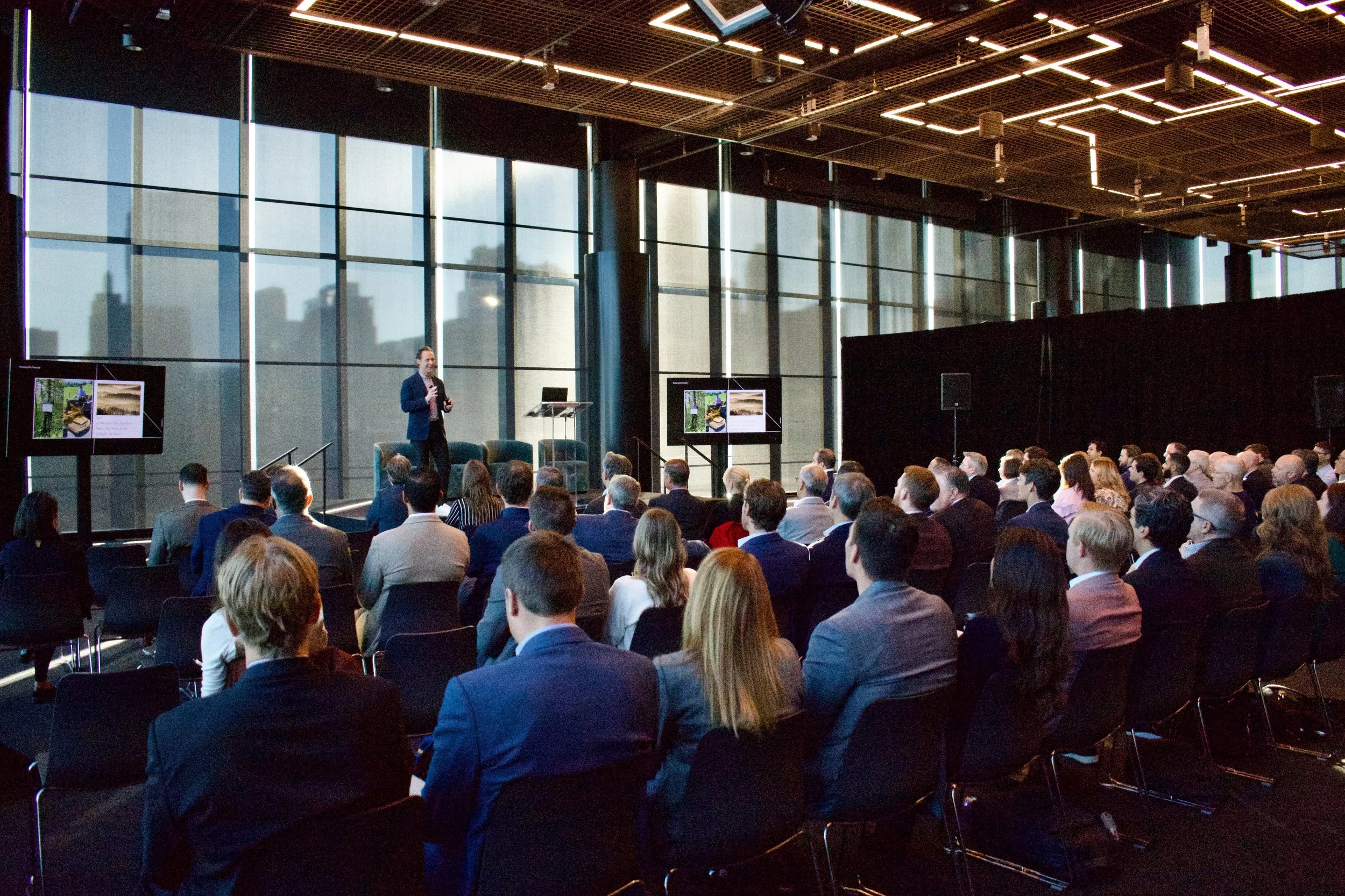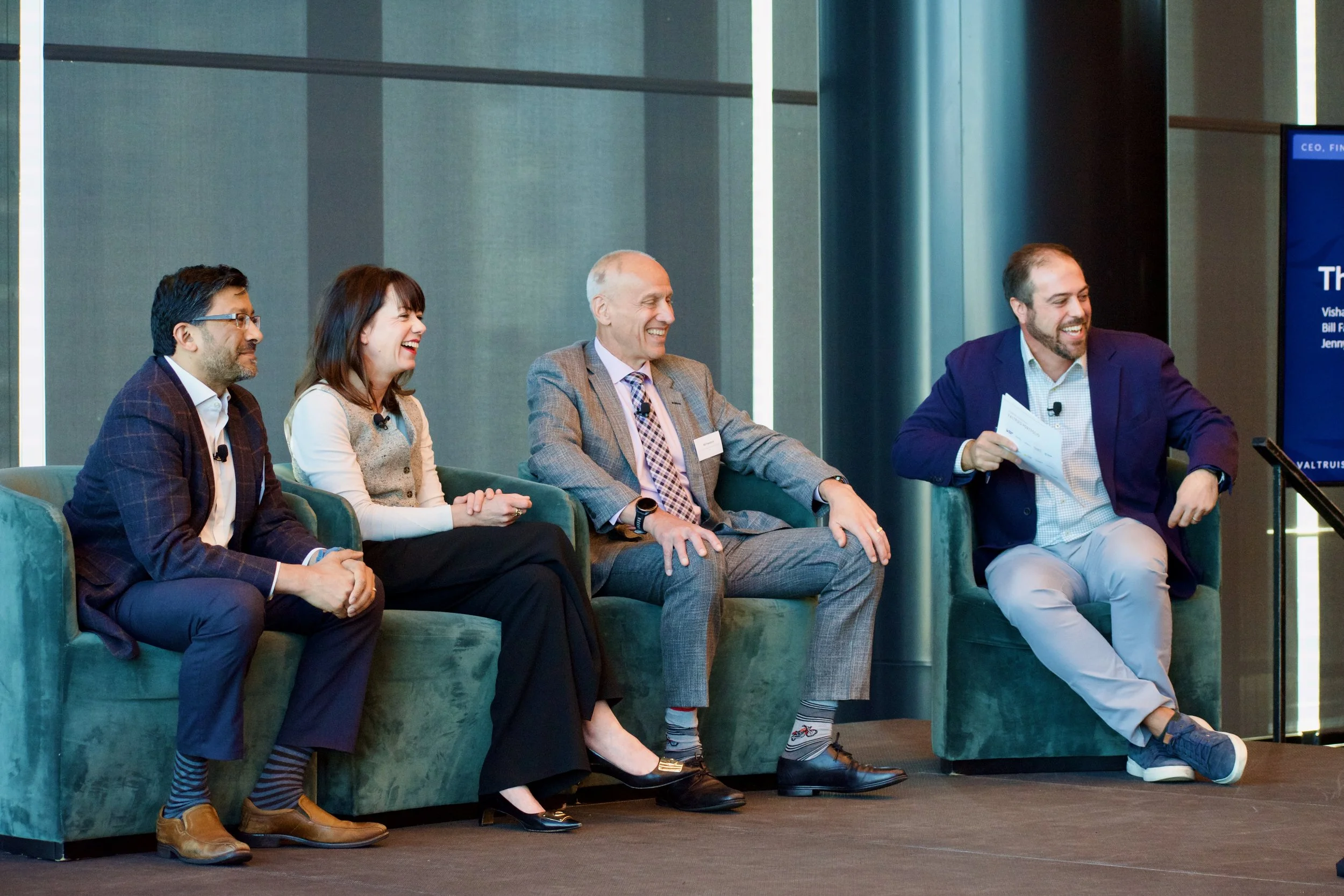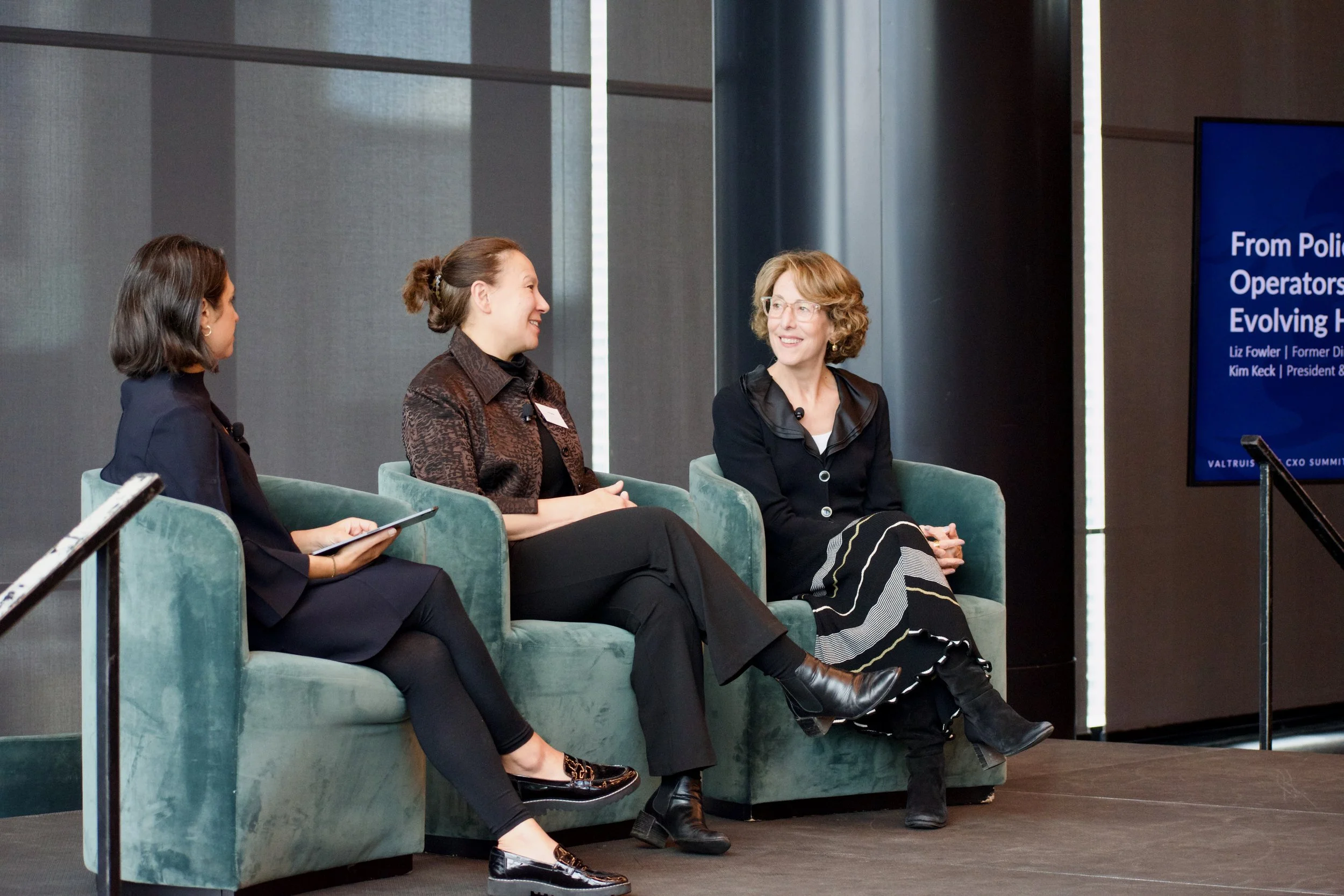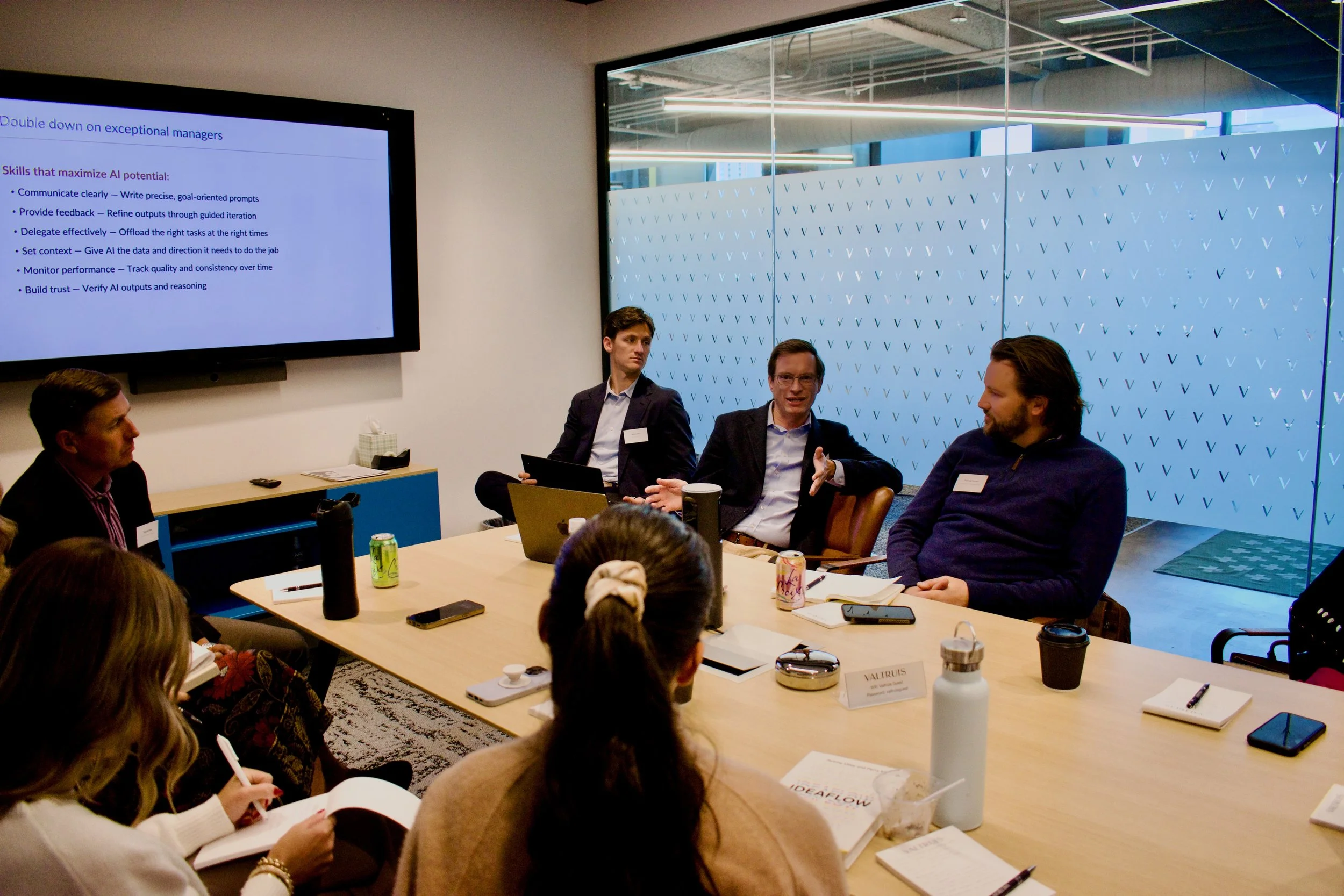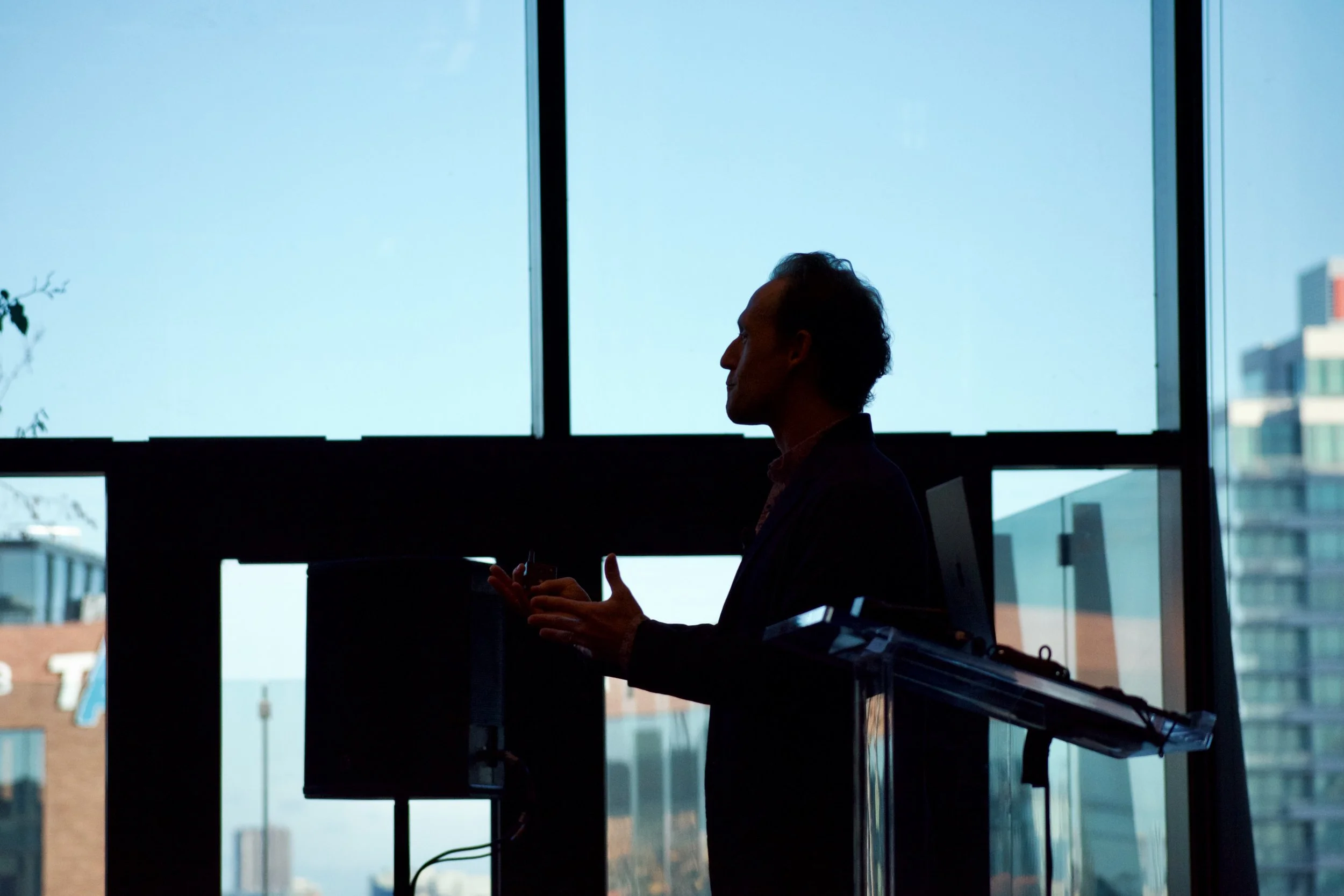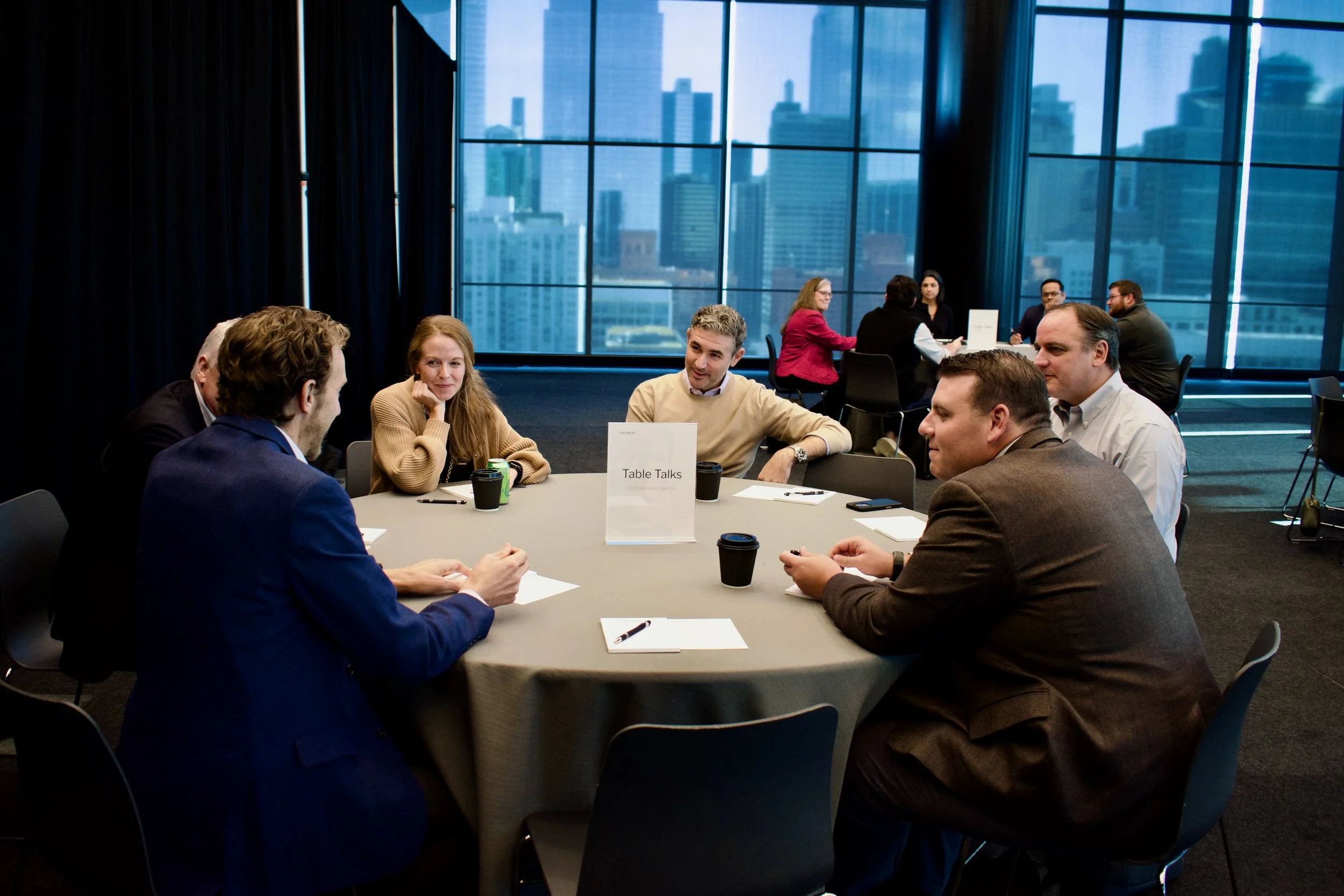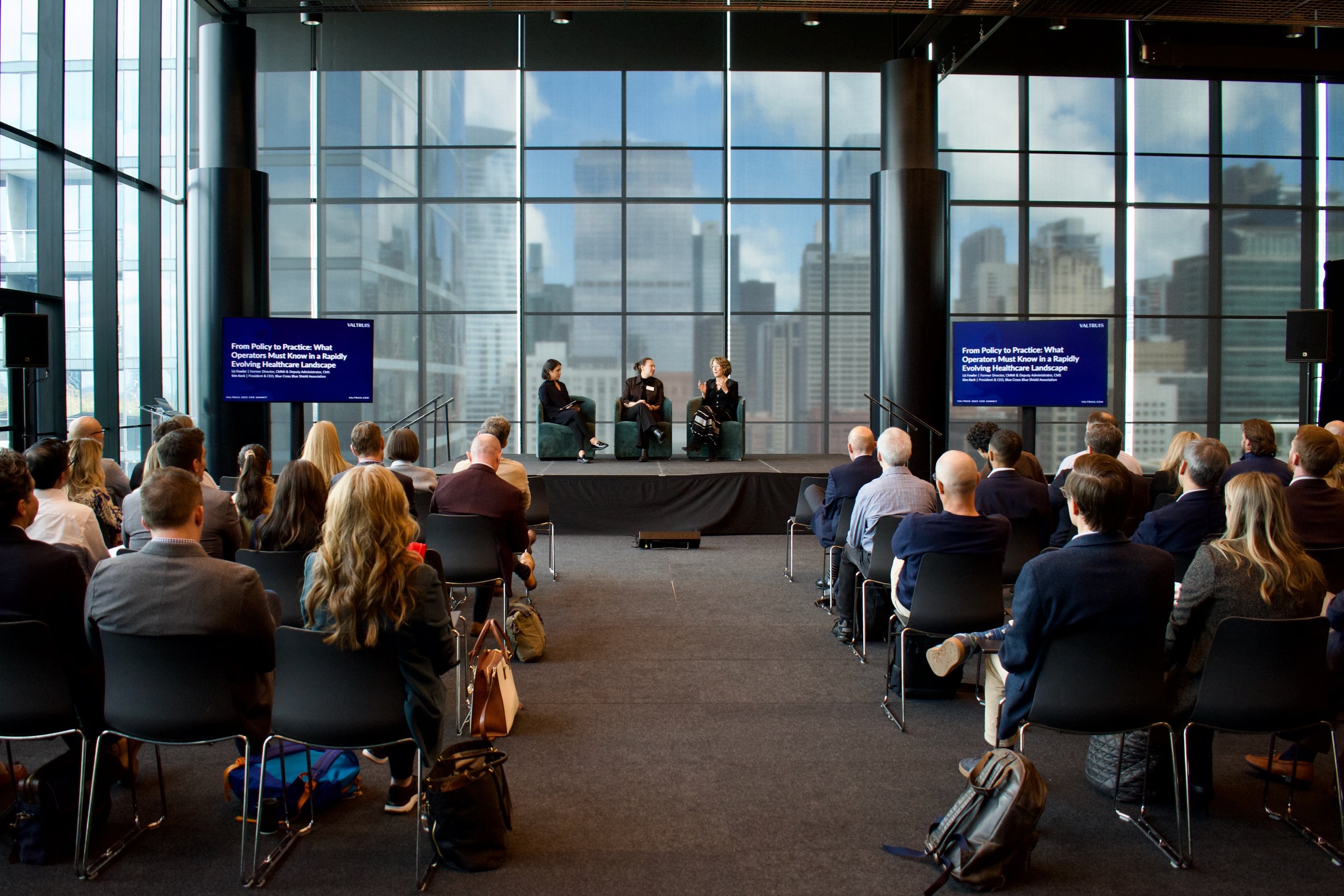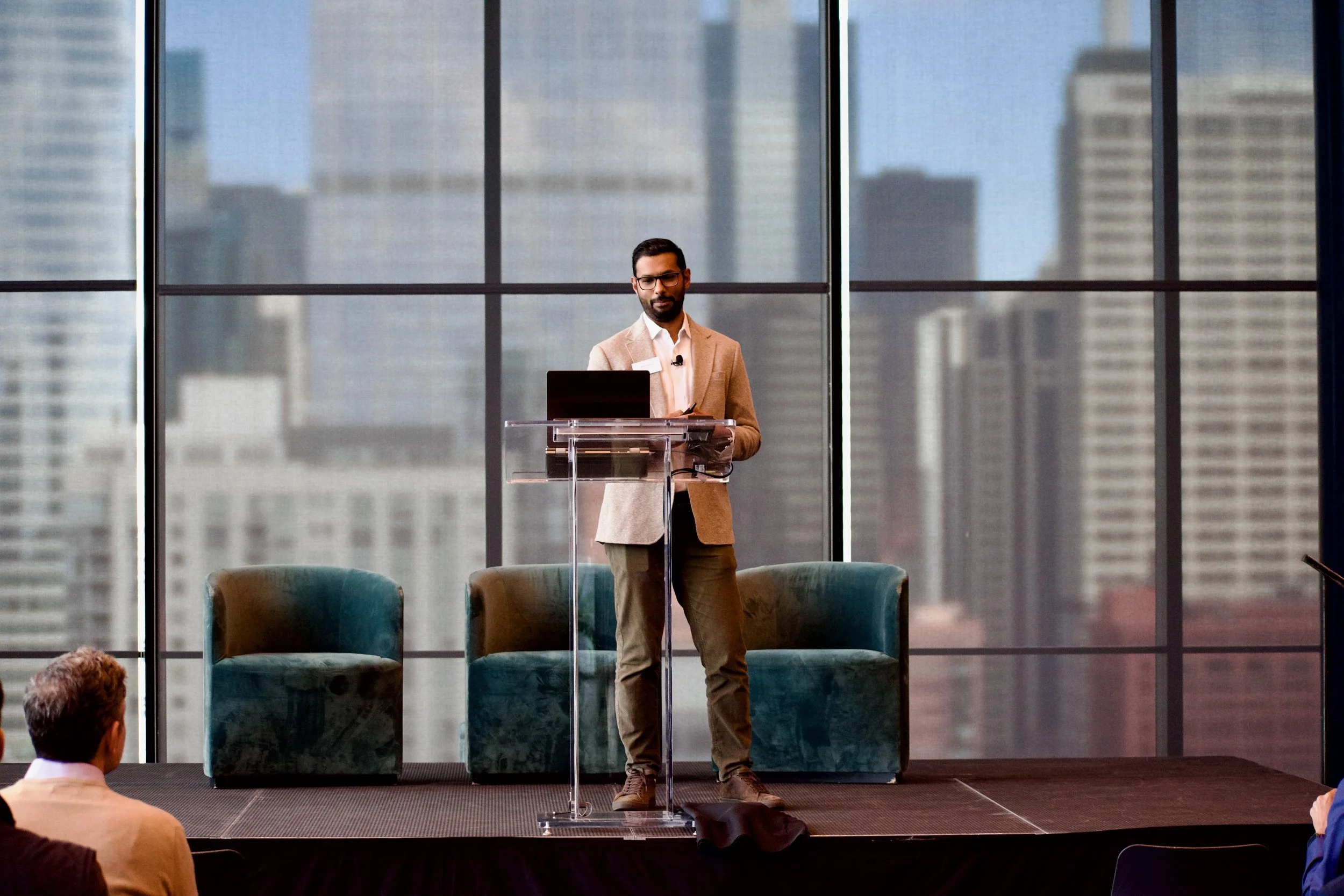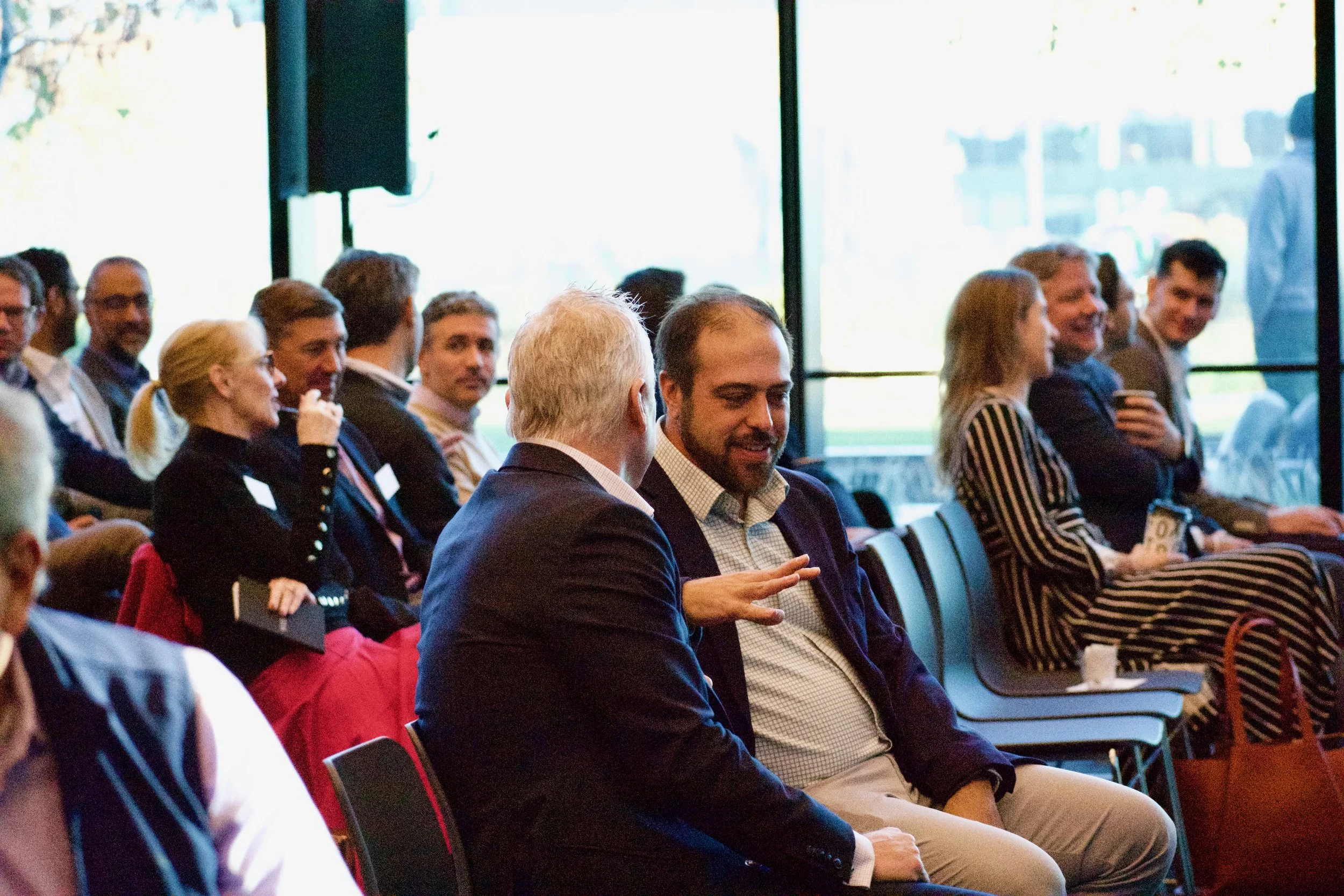
2025 CXO Summit Recap
October 29, Valtruis convened a group of over 100 portfolio company executives, healthcare industry stakeholders, and thought leaders.
Finding Ground Truth in an Age of Acceleration
In an era when the pace of change often outstrips the pace of understanding, clarity has become one of healthcare’s most valuable and elusive commodities. That was the key idea behind Ground Truth, the theme of Valtruis’ third annual CXO Summit, held in Chicago October 29, 2025.
The gathering brought together more than 100 portfolio executives and industry thought leaders from across the healthcare ecosystem. What emerged was not a forecast or a prescriptive answer, but a conversation about how to stay grounded in reality and mission when it feels like everyone else is rushing ahead without either.
The mood was thoughtful and pragmatic. Artificial intelligence was a major theme, but not the only topic. The core focus was on how to apply it responsibly, measure impact, and keep human judgment at the center. Across every discussion, from policy and markets to technology and leadership, one message stood out. Clarity and grounding in your mission is the new competitive advantage.
Valtruis Managing Director Tracy Bahl opened the Summit with a reminder that progress depends on dedication to your true value proposition. “Substance always prevails,” he said, emphasizing that lasting success comes from evidence, execution, and impact, not only velocity.
Valtruis has invested in 16 companies serving more than two million risk lives and generating over six billion dollars in annual gross revenue. But as Bahl noted, scale alone is not the goal. Impact is. Ground truth is about measuring what matters, leading with conviction, and staying consistent in the face of complexity and rapid change, while using advancing technology to accelerate all of the above.
The Human Edge of AI
Keynote speaker Jeremy Utley challenged attendees to see AI as a creative partner rather than a mechanical tool. The most successful organizations, he said, treat AI as a teammate that expands imagination and accelerates problem-solving.
“Instead of looking for good ideas, look for more ideas,” Utley told the audience, urging leaders to embrace experimentation. Innovation comes from iteration, not perfection.
Valtruis portfolio companies reflected that ethos throughout the day. Atropos Health, Wayspring, Jukebox Health, and Autonomize AI each shared how they are blending AI with human oversight to improve outcomes and productivity during Valtruis’ first AI Demo Day. Each session demonstrated that technology evolves quickly, but trust and accountability must keep pace.
“Instead of looking for good ideas, look for more ideas”
Markets in Motion
If technology is redefining what is possible, markets are redefining what is sustainable.
Goldman Sachs’ Seth Reagen offered a realistic view of today’s financial landscape. After several years of exuberance, valuations have normalized, and investors are once again rewarding fundamentals. Deals are fewer, diligence is deeper, and growth capital is moving toward operators who can show proof, not just potential.
That theme carried into a panel with Dr. Vishal Agrawal (Longitude Health, fmr. Humana), Bill Fandrich (Blue Cross Blue Shield of Michigan), and Jenny Ismert (UnitedHealthcare), moderated by Mike Spadafore (Valtruis). They described how payers are adapting their strategies in a tighter environment. Fandrich noted growing fatigue with disconnected point solutions and emphasized the need for orchestration across technology and business units. Agrawal discussed Humana’s method of running multiple vendor partnerships in parallel to accelerate learning and scale what works. Ismert spoke about balancing speed to market with disciplined governance through empowered teams.
Their collective message was that success now depends on aligning innovation with execution. In a market that values results over rhetoric, operational excellence has become a form of innovation in itself.
Policy as Partnership
Policy, too, remains a defining force. In a conversation moderated by Anna Haghgooie (Valtruis), Liz Fowler (fmr. CMS/CMMI) and Kim Keck (BCBSA) explored how regulation and private enterprise can advance equitable healthcare together.
Fowler reflected on her time leading CMMI, noting a shift from experimentation to scaling proven models. Keck emphasized the importance of shared accountability between payers, providers, and policymakers. Both held a similar sentiment on the interaction between regulators and private industry – policy can set the direction, but in today’s market, the industry has to build the road.
The takeaway for operators was straightforward. Anticipate change, build relationships early, and approach policy as a lever for innovation, not a limitation.
Leading Through Complexity
The Summit’s smaller functional breakout sessions turned focus toward leadership itself, and asked how organizations can evolve while remaining true to their mission.
In the Data and Technology session, Sam Deshpande (fmr. Humana) and Rob Carter (fmr. FedEx) shared lessons from decades of transformation. Both spoke about the importance of emotional intelligence and adaptability in technology leadership. Deshpande described how trust between IT and business functions determines the pace of progress. Carter reflected on FedEx’s evolution from mainframes to networked systems, calling adaptability, or “AQ,” the new defining skill for leaders. Both agreed that innovation flourishes when organizations balance structure with curiosity.
In the Clinical Leadership group, Dr. Paul Taheri (WCAS, Yale Medicine) led an open discussion on how AI is reshaping care delivery. Leaders from across the Valtruis portfolio shared real examples of using AI for clinical documentation, triage support, and quality improvement. The conversation emphasized that consistency and reliability define good clinical care, and that technology should enable evidence-based practice rather than replace it.
The HR session, led by Dave Esler (Valtruis) and Rob Whiteman (Better Future Advisors, fmr. McKinsey), explored how teams can adapt as AI changes roles and workflows. Participants discussed how communication, transparency, and culture can turn anxiety into engagement. The consensus was that leadership is the constraint, not technology. Building fluency, trust, and adaptability at every level will determine how quickly organizations can evolve.
Across all three groups, it became clear that progress depends on people. AI may be the accelerant, but human capability remains the engine.
The Work of Ground Truth
Ground truth is not a destination, but a discipline. It connects innovation to impact, capital to execution, and vision to measurable results.
The 2025 CXO Summit was not about predicting what comes next. It was about building the confidence to face it together. For Valtruis, this means partnering with operators who lead with evidence, designing systems that turn data into trust, and helping healthcare evolve without losing its human touch.

